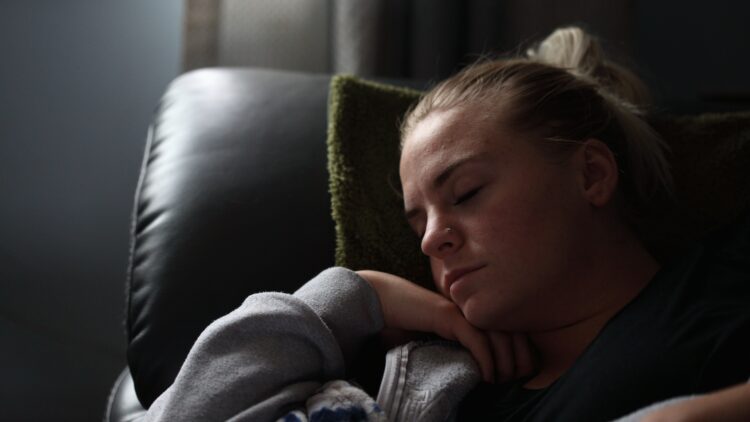It’s happened to us all. The early afternoon hits and we start feeling sleepy. Maybe we didn’t get a good night’s sleep going into the day, or maybe we’ve had a busy morning. Whatever the cause, we’re feeling mighty tired, and decide to lay down for a nap .
There’s absolutely nothing wrong with getting some daytime shuteye, but a recent study shows that as we get older, this behavior may be indicative of a bigger problem.
Who doesn’t love a good nap?

Getting a little bit of shuteye during the day can be a great way to renew some energy and get you back into gear. Some cultures integrate this into their daily routine, like those who partake in siestas, which has been proven to reduce blood pressure.
However, a recent study showed a concerning correlation between heavy daytime napping and cognitive function.
It turns out that frequent napping can be a potential precursor to developing Alzheimer’s disease.

The study was conducted by researchers from the University of California and published in Alzheimer’s & Dementia: The Journal of the Alzheimer’s Association . There were 1401 participants between the ages of 74 and 88 who were made to wear a watch-like device that measured their sleep. The participants would then attend follow-up appointments up to 14 years later.
What were their findings?

First, they noted that older adults do tend to nap more with age, but Alzheimer’s doubled the rate at which those naps increased. They also saw that those who napped either more than once a day or for over an hour every day were 40% more likely to develop Alzheimer’s than those who don’t.
Heavier napping was also seen as a sign of general cognitive decline.
They also discovered that this napping phenomenon isn’t related to the individual’s nighttime sleep.

In a statement, co-senior author Dr. Yue Leng, an assistant professor of psychiatry at the University of California, said, “We found the association between excessive daytime napping and dementia remained after adjusting for nighttime quantity and quality of sleep. This suggested that the role of daytime napping is important itself and is independent of nighttime sleep.”
Though the link is definitely present, the team doesn’t want to claim that naps cause Alzheimer’s.

“I don’t think we have enough evidence to draw conclusions about a causal relationship, that it’s the napping itself that caused cognitive aging, but excessive daytime napping might be a signal of accelerated aging or cognitive aging process,” said Leng.
What should we do then? What’s a healthy nap length?

Leng says that daytime naps should take place before 3 PM and only last 15-20 minutes. That time and length provides the most benefits while not messing up your nighttime sleep, which is also extremely important!
h/t: IFLScience

















































